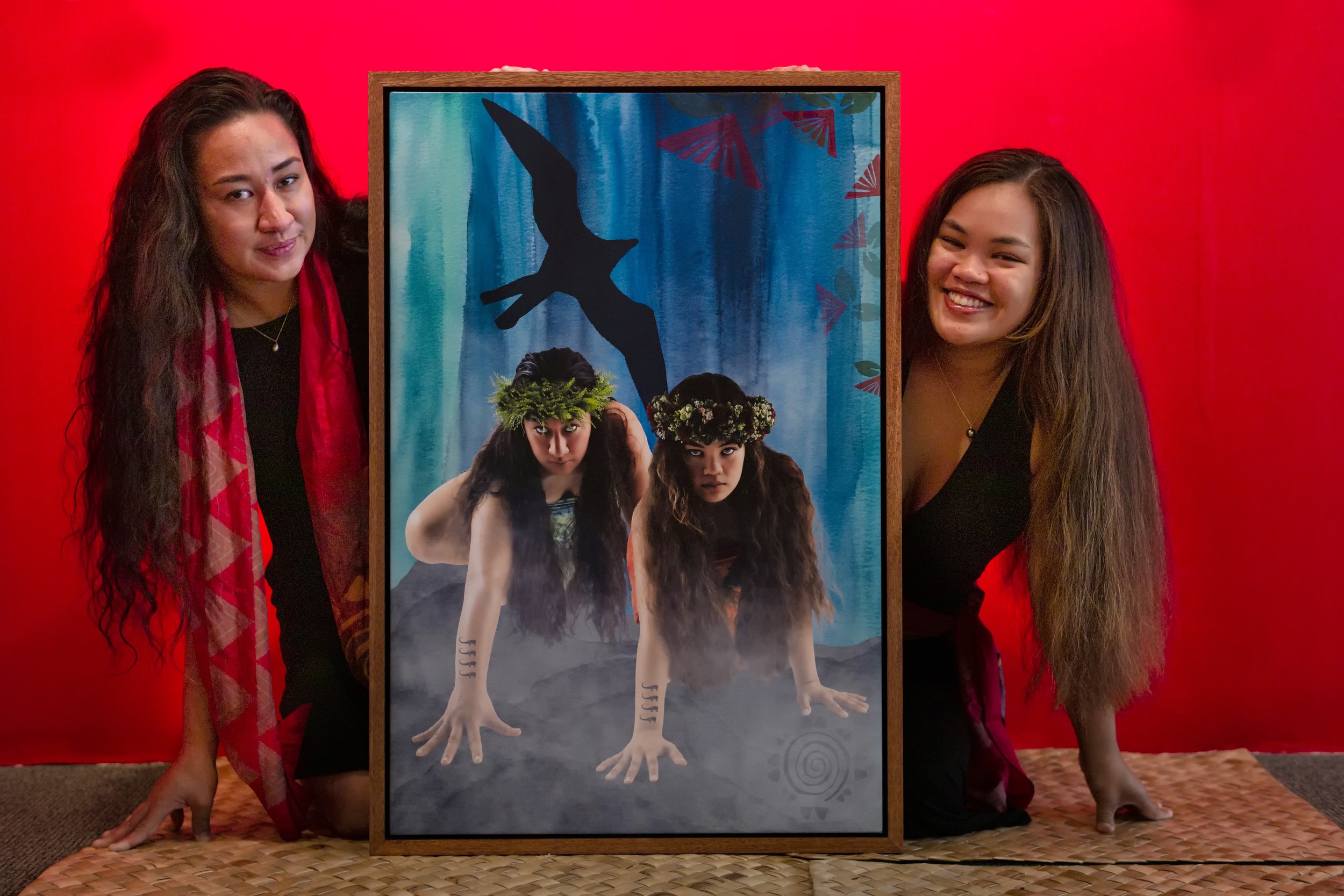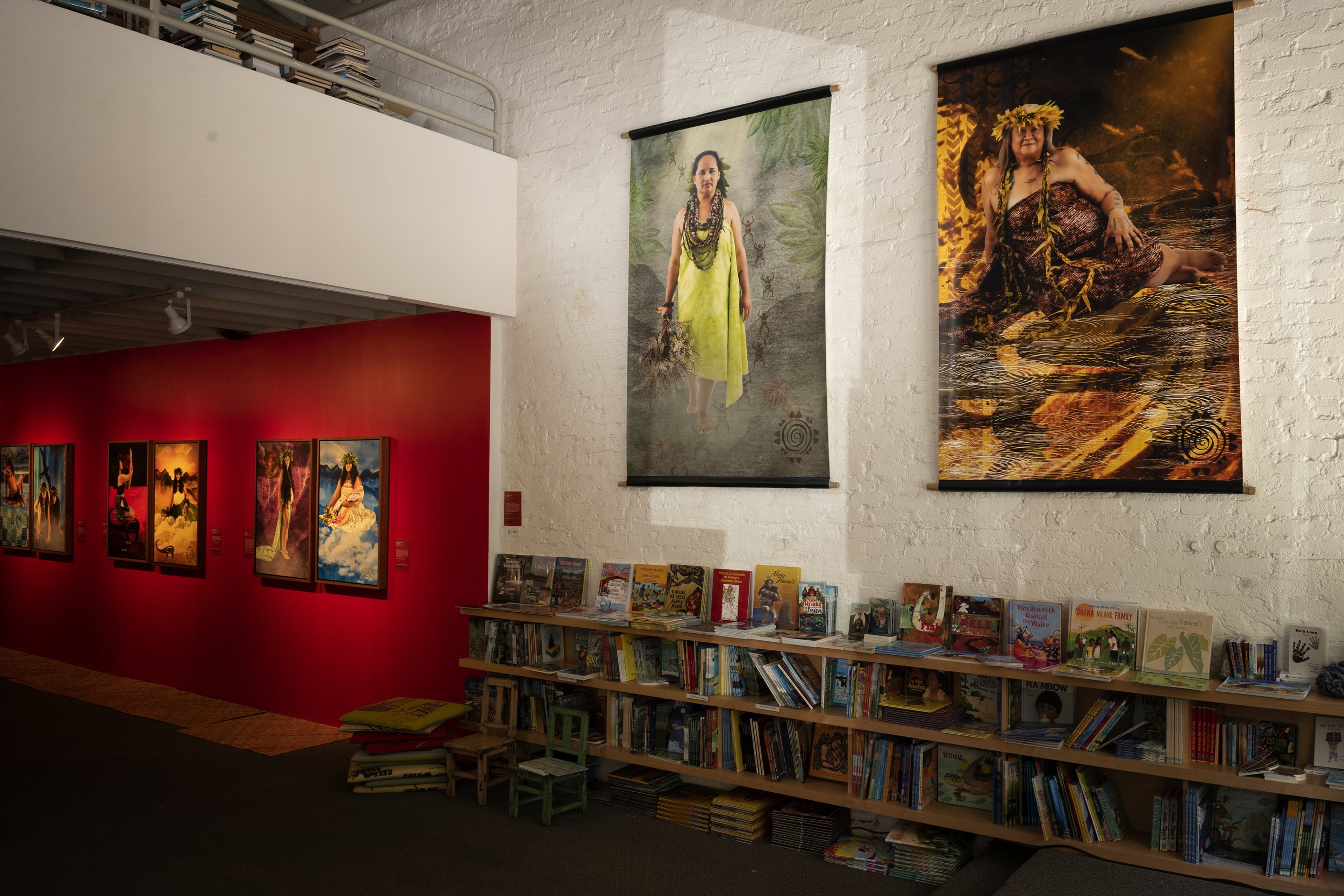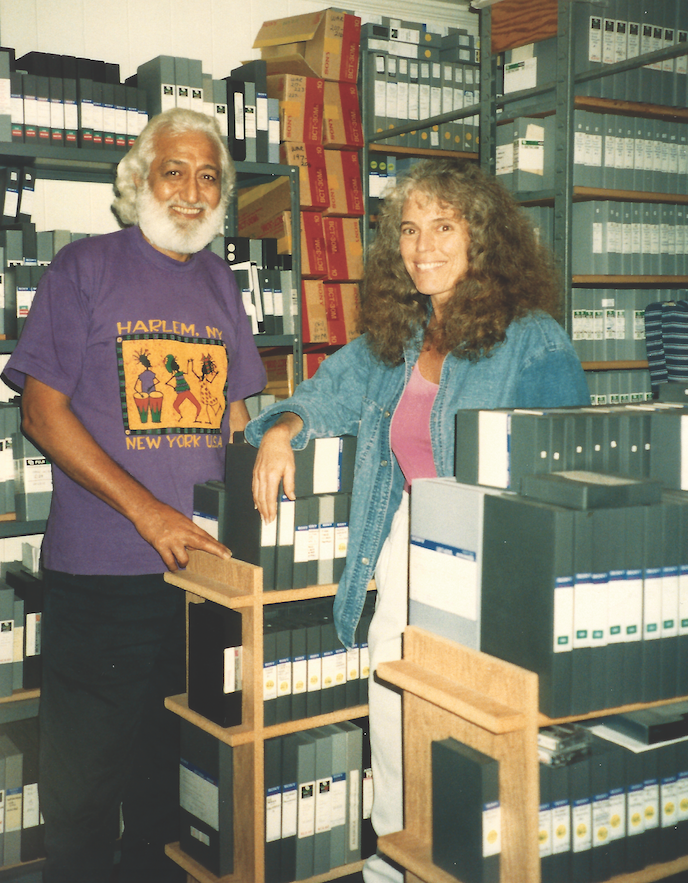Heritage Canvas



The beauty of the Hawaiian Islands and its rich culture and heritage certainly makes it an inspiring backdrop for thriving artists. Pu‘uhonua Society, a long-standing community arts and culture nonprofit, is a third-generation, woman-led powerhouse for the Hawai‘i arts community and those who support it.
Emma Broderick, Pu‘uhonua Society Executive Director, has been at the helm of the arts non-profit for just over a year — following in the footsteps of her mother and grandmother, who led the society for 20-some years.
“There was a need that was intergenerational, to both answer the call of those we love and to continue the work of those before,” Broderick shares, of answering her mother’s wish to take the reigns, calling the society “a passion project” with deep roots both for her family and Hawai‘i-based artists.
When the Pu‘uhonua Society was founded in 1972, Broderick shares that Kailua was mainly a rural place, and the society sprang out of the Young of Heart Gallery & Workshop on the St. Anthony School grounds, which held exhibitions and community arts classes in a community that had not been previously introduced to these types of activities.
Broderick’s grandmother recognized “the need for expression” in society. The organization was later renamed Pu‘uhonua meaning “safe haven,” which can refer to a person or a place, depending on the time of year, but it’s an anchoring understanding, says Broderick, signaling that it connects art, creation, culture, and jus- tice, symbolic for both her grandmother and grandfather.
“My grandfather sought justice through law, and my grandmother through creativity,” Broderick shares, adding that both practices addressed needs of their time. “The form has changed, but the function remains the same.”
Among Pu‘uhonua Society’s various projects Ho‘akea Source is a standout. Ho‘akea Source is a new partner in the Andy Warhol Foundation for the Visual Arts’ Regional Regranting Program. Another the Ho‘omau Na Maka o ka ‘Aina, which is “dedicated to increased access and preservation of Hawai‘i’s stories from Na Maka o ka ‘Aina’s (NMOKA’s) moving-image collection.”
The latter is a film collective that “Aunty Joan,” or Joan Lander, is working on. “Making her 6,500-tape image collection accessible to the public will present so much intergenerational history for years to come,” Broderick shares.
By eventually making everything available on ‘Ulu‘Ulu: The Henry Ku‘ualoha Giugni Moving Image Archive of Hawai‘i, over 30 years of history will now be accessible to public viewing. “This will provide education and understanding to a new generation of Hawaiians, to all who call Hawai‘i home, and to anyone interested in learning more about the real history of Hawai‘i,” Broderick adds.
The project is being released in small screenings to gain interest, exposure, and understanding to gather community support and funding. To learn more, visit puuhonua-society.org/nmoka-cataloging.
The former, Ho‘akea Source, will award six to twelve grants, from $5,000 to $10,000, to selected projects. In the two-year inauguration period, the grants will focus on visual arts, collectives, and collaborations across O‘ahu. Full program details can be found at hoakeasource.org.
This project, as well as the society’s other projects, fulfills the mission of Pu‘uhonua Society by creating opportunities to support artists living and working in Hawai‘i, and by affirming Native Hawaiian value-systems.
“This is an exceptional win for Hawai‘i-based artists; it symbolizes a potential long-term investment in the arts community here,” Broderick shares, adding that they hope to do this annually, and at a minimum for the next two years, awarding 120K total in grants to O‘ahu-based artists in 2024 and 2025.
While donating to this particular opportunity will have closed at the time of publication, those wanting to support can fund other projects and will have another opportunity next year, as this is an expansive project, also open to performance-based art, for artists and the arts community as a whole. “These artists will now have the means and support to authentically share their art with the larger community,” Broderick states.
After reflecting on her first year in the role, Broderick shares a quote that her Aunty Manu used to say: “Things of quality have no fear of time,” adding, “it’s really an honor to respect and understand the work that came before me. Understanding the work of previous generations changes how I move in this one.”
puuhonua-society.org
